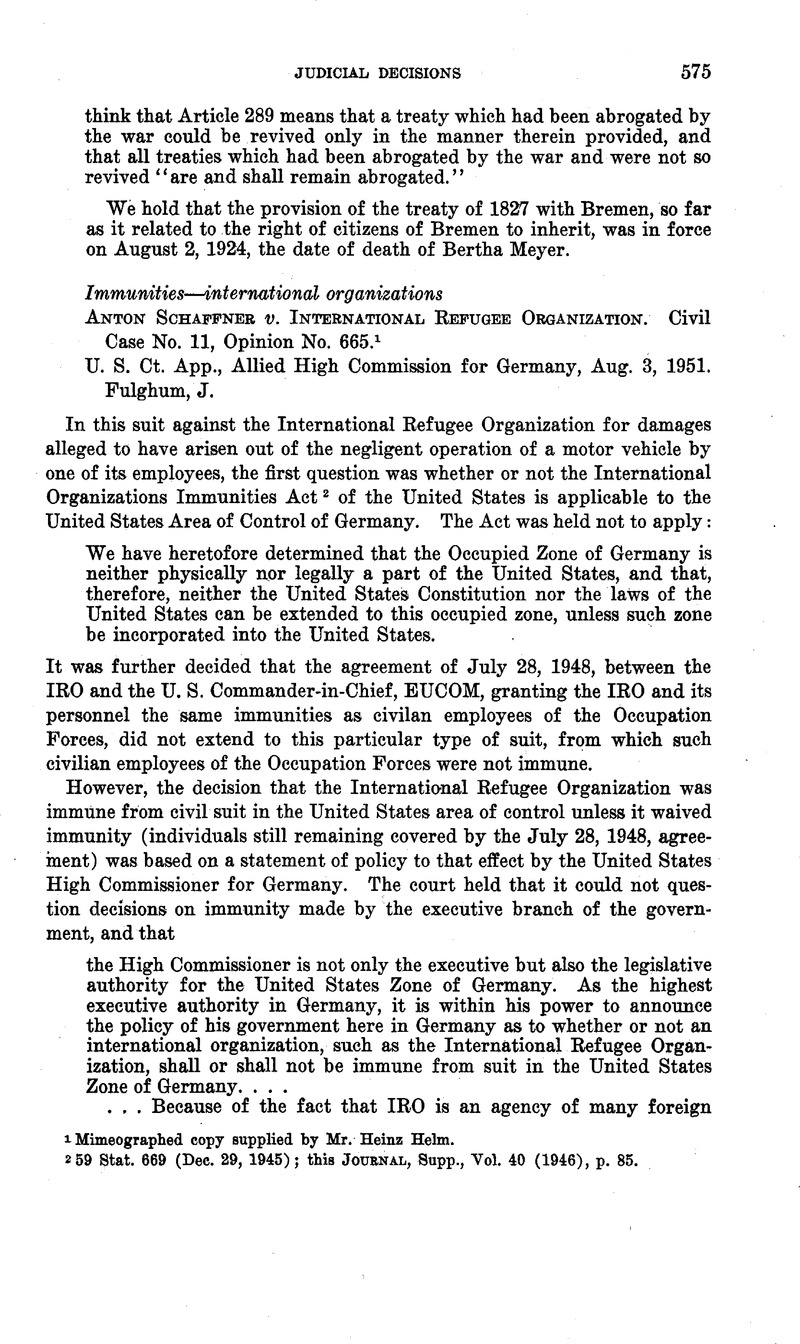No CrossRef data available.
Published online by Cambridge University Press: 20 April 2017

1 Mimeographed copy supplied by Mr. Heinz Helm.
2 59 Stat. 669 (Dec. 29, 1945); this Journal, Supp., Vol. 40 (1946), p. 85.
3 Clark, C. J., dissenting, expressed surprise at the idea that U. S. law is in effect in occupied Germany, thought that the occupation power “is derived solely from that part of international law known as the laws of war,” and that the agreement of July 28, 1948, gave no immunity. He felt that the Executive was entitled to suggest immunity but that such suggestions are not binding on the courts. Moreover, he believed that the doctrine of sovereign immunity should not extend to international organizations, saying: “The very essence of the theory of international organizations is that they transcend national boundaries. By the same token it is inconsistent for them to claim a doctrine of nationalism, in this case immunity.”
In Rappl v. International Refugee Organization, et al., the District Court for the Eighth Judicial District (Munich) of the U. S. Courts for the Allied High Commission for Germany ruled on Feb. 28,1952, that the U. S. Government could not be made a party defendant without its consent, since “It is a general rule in both international and municipal law that a sovereign government cannot be sued except upon its express consent.”